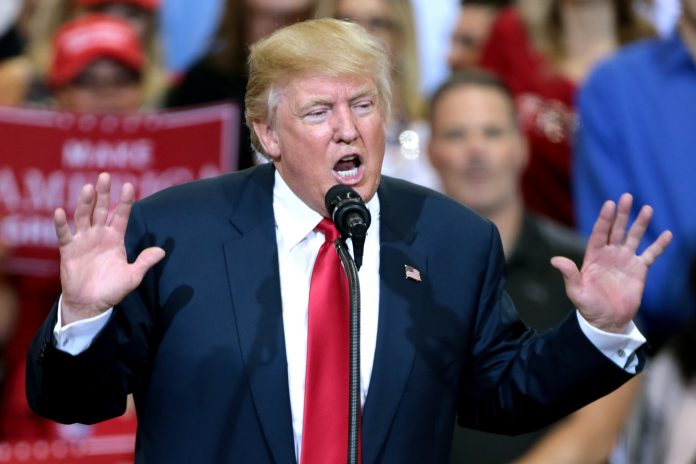With the midterm elections just under a month away, the US faces a turning point in its politics that may be without modern precedent in non-presidential year. Political prognosticators and experts are tracking the races and keeping us informed of who is leading where, what states or districts are moving from leaning red to toss up and where the two parties believe the most competitive campaigns will be. Nobody can predict precisely what will happen, but we know some things about the coming election. The Democrats have decent chance of winning the House, but it is possible that the Republicans could keep control of the lower chamber. The Senate outlook seems to be more favorable for the Republicans. However, there is a small but non-trivial chance that the Democrats could get a few breaks and win control of the Senate, but if they succeed it will be by the slimmest of margins.
Given this, it is useful to think about what the possible outcomes might mean for American politics in 2019, 2020 and beyond. First, those opponents of President Trump who believe a successful midterm for the Democrats will make everything right again in America, need to temper their expectations. Regardless of the outcome in November, there is zero chance that Donald Trump will be impeached, or more accurately removed from office following impeachment. A two thirds majority in the Senate is needed to accomplish that and there is no way that in in 2019 or 2020 15-18 Republican Senators will vote to oust the President. Therefore progressives would be wise to forget about that rosy scenario. Second, control of one, or even both, chambers of Congress will not lead to the passage of progressive legislation, nor will it curb all, or even, most of the undemocratic excesses of the current administration.
This is not to suggest that nothing will be gained by gaining back control of either the House, the easier of the two chambers for the Democrats to win a majority. Democratic control of the House will effectively stymie future legislative efforts of the Trump administration and all but guarantee that rigorous investigations will dog the administration for the rest of the time it is in office. Additionally, a Democratic House could begin to pass progressive bills on education, healthcare, the environment and other issues. These bills would not be turned into law because they would all be unlikely to be supported by a Republican Senate or to survive the President’s veto, but this would begin to make is possible for the Democrats to demonstrate their progressive ideas going into the 2020 election. These would all be good developments, but hardly the stuff that will, on their own, reverse democratic rollback in the US. Therefore, it is important to be realistic about what a Democratic congress would mean, but it is also important to explore what will happen if the Republicans retain control of both Houses of Congress.
The primary reason why the Democrats winning control of the House or the Senate is critical is not because it will solve all, or even some, of the many problems facing American democracy, but because failure to do so will accelerate democratic rollback. If the Republican Party retains control of Congress, Republicans will be emboldened at having defeated the many critics of the President and will move to consolidate their gains through ending the Mueller investigation, or simply disregarding its conclusions, working to pass laws aimed at limiting First Amendment Rights, something Trump suggested as recently as this week, continuing to aggressively undo environmental and labor relations and similar actions. They will do this by dismissing any criticism of the president or demand from anybody to investigate Trump’s criminal behavior by pointing to their election victory.
The irony is that this newly emboldened Republican Party will also be aware that in the long, or even medium, run due to basic demographic realities, the clock is working against them and that winning in 2020 will be even tougher than winning was in 2016 or 2020. This conclusion will be unavoidable to Republican leadership because in a parallel to 2016, while they could retain control of the House, it is extremely unlikely that they will win a majority of the votes cast next month. They GOP already knows they are essentially fighting a battle that, if it is fought on democratic terms, cannot be won. They have sought to address this by supporting things like voter suppression laws, fighting to protect gerrymandering on their terms and otherwise stop democratic reform. All of this will accelerate if the Republicans win control of Congress again this November, making it increasingly unlikely that the 2020 election will qualify as a free, fair and democratic election.
A good midterm for the Democrats is necessary for the future of democracy, but it will not solve all, or really virtually any, of our problems. A Democratic victory will bring some modest change, slow down the process and allow advocates for democracy to, metaphorically speaking, live to fight another day, but a Republican sweep will strengthen the emerging cult of Trump and perhaps take American democracy to a tipping point from which it cannot recover.
Lincoln Mitchell is a scholar, consultant and writer based in New York and San Francisco.
www.lincolnmitchell.com
Follow me on Twitter at: http://twitter.com/LincolnMitchell

